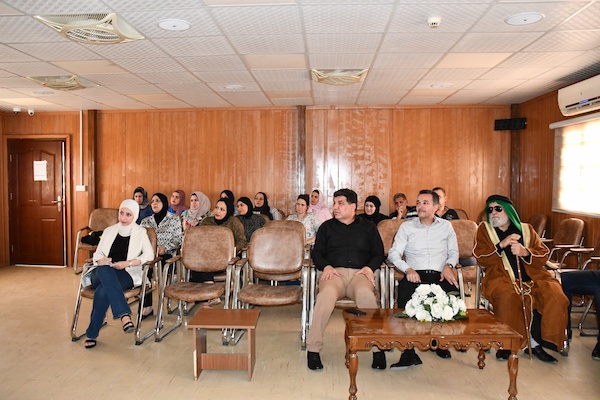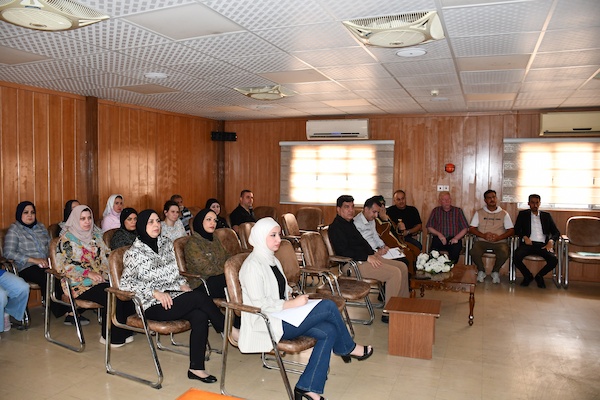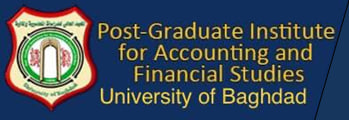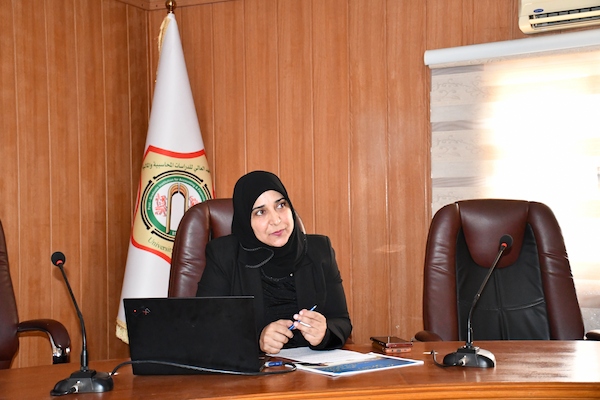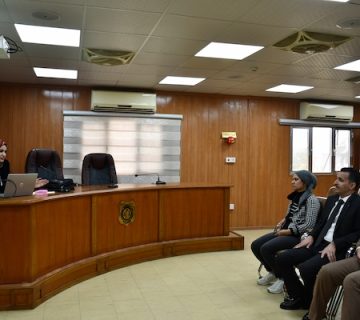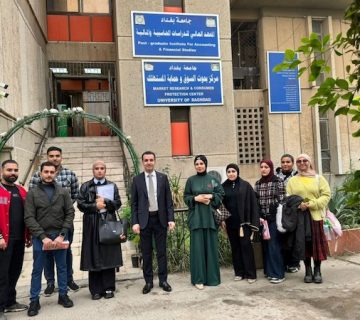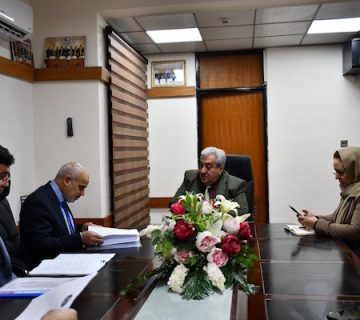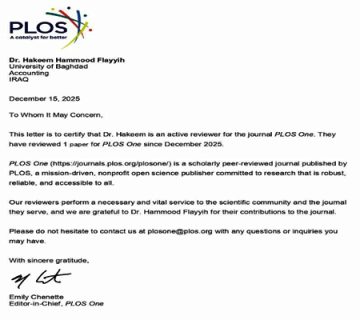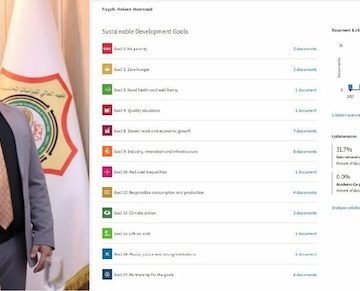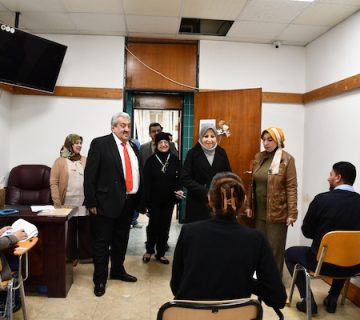Institute Media
Under the supervision of the Dean of the Post-graduate Institute of Accounting and Financial Studies, Chartered Accountant Assistant Professor Dr. Ali Muhammad Thajil Al-Maamouri, the Women’s Affairs Unit at the Institute is holding a workshop entitled “Elections: Between Religious Duty and National Belonging” in the Institute’s auditorium. The workshop was presented by Assistant Professor Dr. Ali Muhammad Thajil Al-Maamouri, Dean of the Institute of Accounting and Financial Studies, and Assistant Professor Dr. Najlaa Sada Hassoun, Assistant Dean of the Institute of Accounting and Financial Studies. A number of faculty members, staff, and graduate students from the Institute participated in the workshop.
The workshop addressed several topics, most notably the importance of elections in Iraq as the primary means by which the people express their opinions and demands and choose their representatives in government institutions to participate in political decision-making and determine the country’s future. This is achieved by providing an opportunity for change through the selection of new leaders capable of achieving the desired reform. In conclusion, the workshop recommended the importance of emphasizing the holding of elections on time and with integrity, the necessity of the participation of every eligible Iraqi citizen, 18 years of age and older, without exception, and the necessity of women’s participation in the elections as voters and candidates for the Council. This constitutes an acknowledgement of the legitimacy of the political participation of Muslim women and the necessity of the participation of all Iraqis of various nationalities, religions, and sects. It also emphasized support for the formation of a committee of independents whose mission is to assist political parties, movements, and candidate figures in forming a unified list capable of competing and achieving the desired victory.
These activities are classified within the environmental and sustainability objectives to achieve Goal (11) of making cities and human settlements inclusive, safe, resilient, and sustainable.
